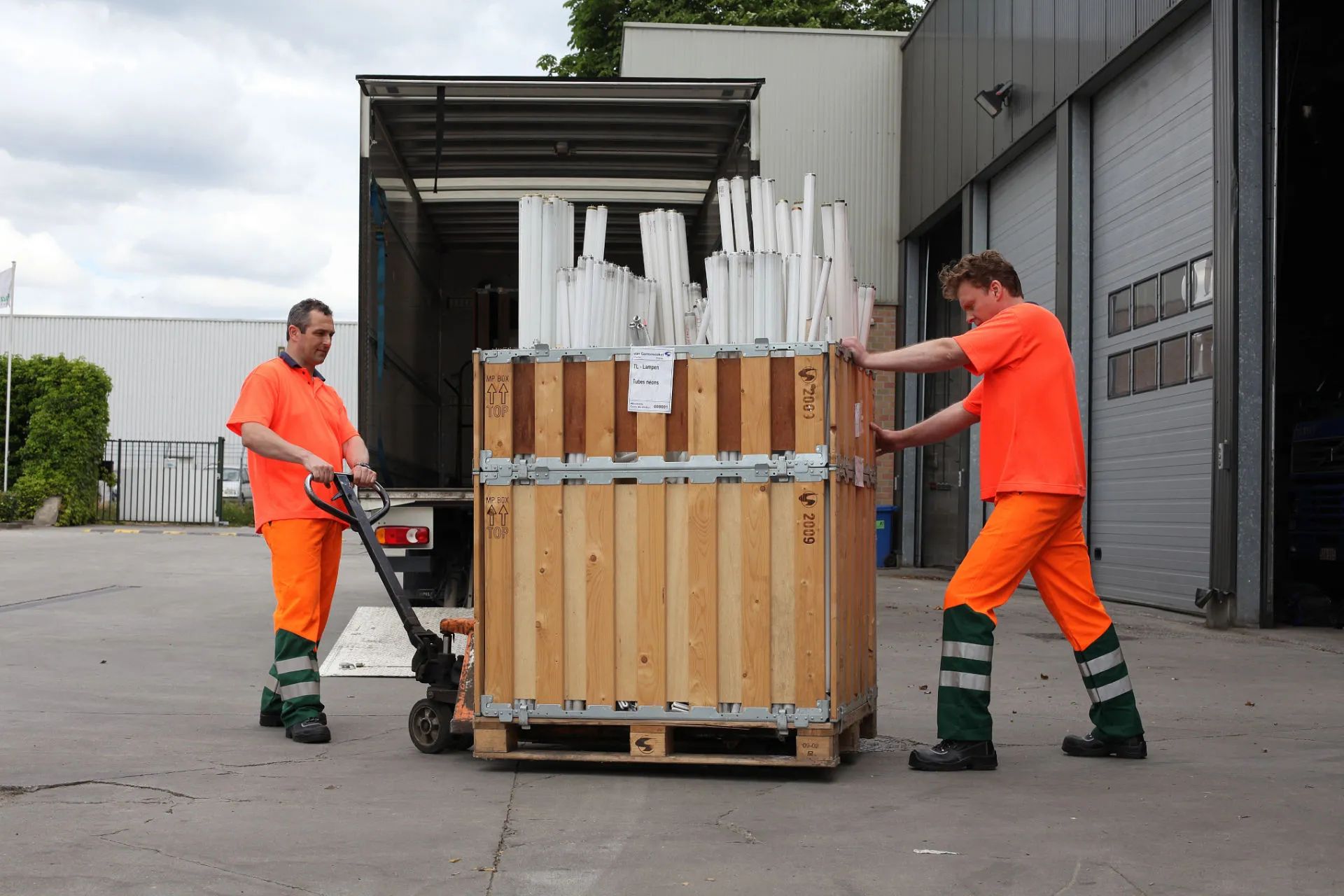
“We want to make a difference in
every stage of the circular economy”
For Recupel, 2019 was a record year in terms of collecting e-waste. “We are reaping the rewards of the efforts we made in recent years,” says Bruno Vermoesen, Chairman of the Board of Directors. “But we remain ambitious: Recupel must become a hub in the circular economy.”

Are you satisfied with 2019's results?
Last year, Recupel collected a record amount of e-waste. No less than 122,548 tonnes were dropped off at RecyclePoints, recycling parks, or one of our partners. That is an increase of 4.4% compared to 2018. I am satisfied that the substantial investments in the collection network and communication campaigns are having an effect.
Nevertheless, at a national level, there is still work to be done. After all, Recupel is not the only organisation in Belgium that collects e-waste. Belgium, like many other Member States, is still not meeting the collection target of the European Directive [which stipulated that by 2019, all Member States have to collect at least 65% of the average weight of what had been placed on the market in the preceding three years or 85% of what was discarded]. In this regard, we must all shift up a gear.
We are achieving the targets for recycling and useful applications.
That’s right. Indeed, at Recupel, we have been well above the European average for years. This is because we only work with certified processors that have a WEEELABEX certificate or equivalent, which means that they must respect the minimum targets. But this is not the case for many collectors and processors. We are therefore calling on the EU to introduce the targets for everyone.
Artificial Intelligence
New jobs in the circular economy
Our 20th anniversary is in 2020, which is a good time for reflection. We are already playing a key role in terms of collection and processing of e-waste. Looking towards the future, we are reflecting on how we can bring added value to all the stages of the circular economy.
Our ambition is to become a hub in the circular economy in Belgium. I see that as an opportunity rather than a challenge. The circular economy of the future is good for both people and the planet. By closing the material loops, fewer primary raw materials need to be used, which also reduces CO2 emissions. Furthermore, the collection, reuse, and processing of end-of-life electronic equipment is good for employment. It also offers great opportunities for the social economy. By working together with sheltered workshops, we have created work for 414 long-term unemployed people, people with disabilities and those aged over 55. This is another area where we can make a difference.
"Our ambition is to become a hub in the circular economy in Belgium. I see that as an opportunity rather than a challenge."



